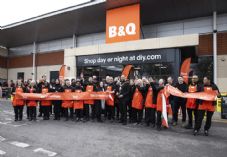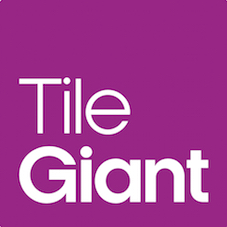International DIY News
New B&Q Chief Executive faces significant challenges
The company we are focusing on today, the mass-market DIY retailer Kingfisher, was not much more than a twinkle in someone's entrepreneurial eye barely 40 years ago. Now you cannot pass an industrial estate in these islands without a large reminder of its presence, because Kingfisher's brands B&Q, Brico and Castorama, make it the third largest home-improvement company in the world.
If you have only a modest taste for nostalgia you will need no reminding that Kingfisher came to life in the early 1980s when the British and Irish branches of Woolworths (my favourite store chain) was acquired and with it a small number of B&Q stores.
It was nearly compulsory to be a conglomerate at the time and Kingfisher did just that. As a result it acquired Comet and Darty, electrical retailers in the UK and France; Superdrug, a chemist chain; Screwfix, an ecommerce company and other bits and bobs. By the beginning of this century it abandoned conglomerateship and demerged. Castorama was purchased by the group in 2002.
Kingfisher today is a mass-market DIY retailer with 1,100 stores in 10 countries and is valued at £7.5bn. It is the market leader in DIY in the UK, France, Poland and Turkey, and has the number two slot in Spain. Its B&Q brand has 400 outlets in the UK, Ireland and China, but it is seeking a partner for its loss-making Chinese operation. The Irish company concluded a recent stint in examinership with one store less. It now has eight and obtained significant rent reductions. Its Castorama brand has 200 stores in the French, Polish and Russian markets; half of the outlets in France. The Brico brand is found mainly in France and Spain and has 150 stores.
The company recently agreed, subject to French government approval, to acquire rival Mr Bricolage for £275m plus £120m of debt. Kingfisher has agreed to retain the network of 'owned' shops and the profitable franchise stores in France. Last year Mr. Bricolage had sales of £550m and profits of £17m. The deal offers Kingfisher a larger footprint in France and would also add 2pc to earnings before any cost savings.
Working through the numbers in the Kingfisher accounts show group sales at £11bn and profits of £744m. Broken down, it shows that turnover in the UK, Ireland and France accounts for 80pc of the business. The remaining eight countries contribute £2bn in sales and profits of £130m. France, the largest market, contributes £4.4bn to group sales and almost half of Kingfisher's profits from 230 stores. The UK and Ireland follows with sales of £4bn, of which Screwfix accounts for £670m and contributes £238m in profits with its 360 stores. Of some concern are Kingfisher sales as they have grown by a minuscule 6pc over the last 5 years while stores have increased from 830 to 1,100. It seems clear the recession has cast its malign eye on the group.
Recently the company appointed a French woman Veronique Laury as CEO. Currently head of Castorama she will be one of only five women running a FTSE100 company. The new CEO inherits many problems and will need time and money to turn around Kingfisher. She cannot be pleased with the recent decline in profits.
The B&Q business in the UK, needs overhauling, integrating Mr Bricolage could be a handful and the loss-making Chinese business needs attention.
Higher costs outside the UK and France are also of concern and the depressed French market does not help. Investors welcome the decision to return £200m to the shareholders but are unhappy with the slump in the share price over the last year. Given all these challenges Kingfisher may be a buying opportunity to avoid at this time.
Source: John Lynch - Irish Independent
Read the full news article here.
Insight DIY always publishes the latest news stories before anyone else and we find it to be an invaluable source of customer and market information.











































